ECCB'12 Keynote Speakers
ECCB Opening Keynote:
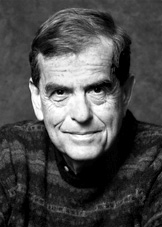
Aaron Ciechanover
Technion - Israel Institute of Technology
Nobel Laureate in Chemistry (2004)
Aaron Ciechanover was born in Haifa, Israel in 1947. He is a Distinguished Research Professor in the Technion - Israel Institute of Technology in Haifa. He received his M.Sc. (1971) and M.D. (1973) from the Hebrew University in Jerusalem. He then completed his national service (1973-1976) as military physician, and continued his studies to obtain a doctorate in biological sciences in the Faculty of Medicine in the Technion (D.Sc.; 1982). There, as a graduate student with Dr. Avram Hershko and in collaboration with Dr. Irwin A. Rose from the Fox Chase Cancer Center in Philadelphia, USA, they discovered that covalent attachment of ubiquitin to a target protein signals it for degradation. They deciphered the mechanism of conjugation, described the general proteolytic functions of the system, and proposed a model according to which this modification serves as a recognition signal for a specific downstream protease. As a post doctoral fellow with Dr. Harvey Lodish at the M.I.T., he continued his studies on the ubiquitin system and made additional important discoveries. Along the years it has become clear that ubiquitin-mediated proteolysis plays major roles in numerous cellular processes, and aberrations in the system underlie the pathogenetic mechanisms of many diseases, among them certain malignancies and neurodegenerative disorders. Consequently, the system has become an important platform for drug development. Among the numerous prizes Ciechanover received are the 2000 Albert Lasker Award, the 2003 Israel Prize, and the 2004 Nobel Prize (Chemistry; shared with Drs. Hershko and Rose). Among many academies, Ciechanover is member of the Israeli National Academy of Sciences and Humanities, the American Academy of Arts and Sciences (Foreign Fellow), the American Philosophical Society, the National Academy of Sciences of the USA and the Institute of Medicine of the National Academies of the USA (Foreign Associate), and the Russian Academy of Sciences (Foreign Member).
ECCB'12 Keynote Speakers:
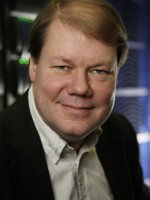
The EMBO Lecture by:
Søren Brunak
Technical University of Denmark
Director, Center for Biological Sequence Analysis
Søren Brunak, Ph.D., is professor of Bioinformatics at the Technical University of Denmark and professor of Disease Systems Biology at the University of Copenhagen. Prof. Brunak is the founding Director of the Center for Biological Sequence Analysis, which was formed in 1993 as a multi-disciplinary research group of molecular biologists, biochemists, medical doctors, physicists, and computer scientists. Søren Brunak has been highly active within data integration, where machine learning techniques often have been used to integrate predicted or experimentally established functional genome and proteome annotation. With 120 employees it is one of the large bioinformatics and systems biology centers in Europe. His current research does combine molecular level systems biology and healthcare sector data such as electronic patient records and biobank questionnaires. The aim is to group and stratify patients not only from their genotype, but also phenotypically based on the clinical descriptions in the medical records. Søren Brunak is a member of EMBO
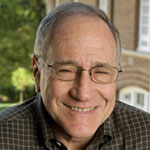
Barry Honig
Professor of Biochemistry and Molecular Biophysics, Columbia University, New York, USA.
Director, Center for Computational Biology and Bioinformatics, Columbia University
Investigator, Howard Hughes Medical Institute
Barry Honig's research involves the use of computational approaches, based on both biophysics and bioinformatics, to study the structure and function of biological macromolecules. His current interests include the molecular basis of cell-cell adhesion, the principles of protein-DNA recognition and the general exploration of protein sequence/structure/function relationships. Professor Honig received his B.Sc. from the Polytechnic Institute of Brooklyn in 1963 and the Ph.D. from the Weizmann Institute and Tel-Aviv University in 1968 under the direction of Joshua Jortner. He was a postdoctoral fellow with Martin Karplus in the Chemistry Department of Harvard and then with Cyrus Levinthal in the Biology Department of Columbia. He has been a senior lecturer in the Hebrew University and an associate professor at the University of Illinois. Since 1981, Dr. Honig has been a professor of Biochemistry and Molecular Biophysics at Columbia University and is currently the director of Columbia’s Center for Computational Biology and Bioinformatics. He is an investigator of the Howard Hughes Medical Institute and is a member of the U.S. National Academy of Sciences and the American Academy of Arts and Sciences. He has been President of the Biophysical Society, received an NIH Merit Award, is recipient of the Founders Award of the Biophysical Society, the Alexander Hollaender Award in Biophsyics from National Academy of Sciences, Christian B. Anfinsen Award from the Protein Society, DeLano Award for Computational Biosciences from the American Society for Biochemistry and Molecular Biology and is a Fellow of the American Association for the Advancement of Science and of the Biophysical Society. He is the author of around 300 publications.
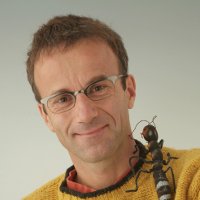
Laurent Keller
University of Lausanne
Laurent Keller (1961) is professor of evolutionary biology and head of the Department of Ecology and Evolution at the University of Lausanne. One of his main goals is to understand the principles governing the origin and evolution of animal societies. He is using ants as model systems to investigate how groups composed of individuals using simple rules can exhibit complex properties and robust behaviour at the colony level. Recently he has been particularly interested in how interactions between genetic and social factors jointly influence the behaviour of individual workers and colony social organisation. To address these questions he combines behavioural studies, genomic analyses and modelling. He has published about 300 research articles and has been awarded several prizes including the Brunner Prize, the Leenaards Research Award, the National Latsis Prize 2000 (awarded by the Swiss NSF), and the E.O. Wilson Naturalist Award.
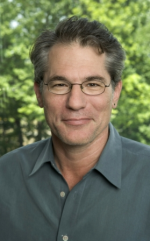
Gene Myers
Max-Planck Institute of Molecular Cell Biology and Genetics (MPI-CBG) Dresden
Gene Myers is first and foremost a computer scientist who develops algorithms and software for complex problems. Fifteen years ago, Gene Myers co-wrote an article for the Journal of Molecular Biology that would become the most highly cited scientific paper of the decade. The paper describes a computer program he conceived called BLAST, for basic local alignment search tool, which rapidly compares any DNA sequence with every other sequence in the public genome databases. He is also well known for the paired-end whole genome shotgun sequencing protocol and the assembler he developed at Celera that delivered the fly, human, and mouse genomes in a three-year period. Today, his focus is exclusively on trying to build models and atlases from microscope-generated imagery of biological entities.
He was awarded the IEEE 3rd Millenium Acheivement Award in 2000, the Newcomb Cleveland Best Paper in Science award in 2001, and the ACM Kanellakis Prize in 2002. He was voted the most influential in bioinformatics in 2001 by Genome Technology Magazine and was elected to the National Academy of Engineering in 2003. In 2004 he won the International Max-Planck Research Prize and in 2005 was selected as one of two distinguished alumni (with David Haussler) at his alma-mater, the University of Colorado. In 2006 Gene was inducted into Leopoldina, the German Academy of Science, and awarded an honarary doctorate at ETH, Zurich.
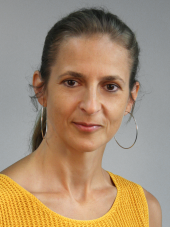
Mihaela Zavolan
Biozentrum University of Basel & SIB
Mihaela Zavolan was born in Romania and studied medicine at the University of Medicine and Pharmacy, Timisoara. After graduating as a Medical Doctor she moved to the US to study computational immunology at the Los Alamos National Laboratory and The Santa Fe Institute. She further obtained a PhD Degree in Computer Science from the University of New Mexico, Albuquerque. She then took on a postdoctoral position at the Rockefeller University where she was a Burroughs-Welcome fellow. Since 2003 she has been working at the Biozentrum of the University of Basel where she is now an associate professor in Computational Biology. She is also a group leader of the Swiss Institute of Bioinformatics. Her research focuses on gene regulation by means of small RNAs.










































